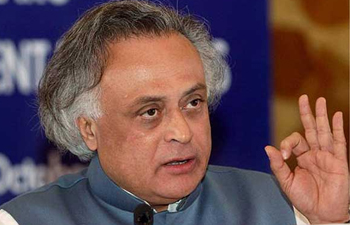New Delhi, Apr 20: The Centre on Monday said that India's COVID-19 doubling rate has improved to 7.5 days from 3.4 days before the lockdown was enforced to check the spread of the coronavirus.
"India's doubling rate before the lockdown was 3.4 days. It has now improved to 7.5 days. As per data on April 19, in 18 States, the rate is better than the national average," said Lav Agarwal, Joint Secretary, Union Health and Family Welfare Ministry, at a daily briefing here.
"The number of districts where no case has been reported in the last 14 days has increased to 59 in 23 States and UTs. Goa is now COVID-19 free," he said.
India's total number of coronavirus positive cases has risen to 17,656 including 14,255 active cases, 2,842 cured/discharged/migrated and 559 deaths, according to the Ministry of Health and Family Welfare.
"Mahe in Puducherry, Kodagu in Karnataka and Pauri Garhwal in Uttarakhand have not reported any COVID-19 case in last 28 days," said Agarwal.
Let us take a look at the top developments of the day regarding the COVID-19 situation in the country:
1. There are 23 active COVID-19 cases in Himachal Pradesh. 11 patients have recovered, four migrated out of the State and one person succumbed to the disease. A total of 2,902 people have been tested for COVID-19 so far, said Himachal Pradesh Health Department.
2. The number of COVID-19 cases has risen to 408 in Karnataka including 16 deaths and 112 discharges, according to the state Health Department. 18 new cases have been reported in the last 24 hours.
3. "14 new COVID-19 cases reported, all from Kashmir. The total number of cases now stands at 368, Jammu-55 and Kashmir-313," said Rohit Kansal, Principal Secretary, Planning, Union Territory of Jammu and Kashmir administration.
4. According to Punya Salila Srivastava, Joint Secretary, Ministry of Home Affairs, the Ministry wrote to Kerala government yesterday, expressing concerns over modified guidelines regarding lockdown. "Kerala has allowed some activities that violate the Ministry's instructions issued under the Disaster Management Act," she said.
5. Five more police personnel from Chandni Mahal police station have tested positive for COVID-19. Till now eight personnel from the police station have tested positive for the virus, according to the Delhi Police.
6. Total 57 new COVID19 cases and two deaths have been reported today. Cumulative positive cases now stand at 1,535, and toll at 25, said Rajasthan's Health Department.
7. Indian Council of Medical Research (ICMR) has said that RTPCR kits are US FDA approved and have good standards and these should be stored under 20-degree temperature for better result.
8. "A total of 283 more COVID-19 cases have been reported in Maharashtra, taking cumulative positive cases in the State to 4,483, as of 11 am today. Of the 283 new cases, Mumbai has recorded 187," said Rajesh Tope, Maharashtra Health Minister.
9. One new COVID-19 positive case was reported today in Bokaro, taking the total number of cases in the State to 42, said Nitin Madan Kulkarni, Jharkhand's Health Secretary.
10. According to Punjab's Health Department, only one person has been tested positive for COVID-19 in the State today. The person is a contact of the COVID-19 patient.
11. "There is only one red zone district in Chhattisgarh. For the last 72 hours, no COVID-19 positive patient has been found even in that red zone district. I am hoping that whole of Chhattisgarh will be green zone soon," said Chief Minister Bhupesh Baghel.
12. Six new COVID-19 cases were reported in Kerala, all from Kannur, of which 5 have foreign travel history. Total cases in the State at 408, including 114 active cases, said Kerala Chief Minister Pinarayi Vijayan.
Meanwhile, the Centre has constituted six Inter-Ministerial Central Teams (IMCTs), two each for West Bengal and Maharashtra and one each for Madhya Pradesh and Rajasthan to make an on-spot assessment of the situation and issue necessary directions to the state authorities for their redressal and submit a report to the Central government in the larger interest of the general public.
 New Delhi, Jun 11: Accusing ruling BJP of having "reaped benefits" of communal polarisation in the Lok Sabha elections, Congress today said the government should now focus on good governance and deliver on promises.
New Delhi, Jun 11: Accusing ruling BJP of having "reaped benefits" of communal polarisation in the Lok Sabha elections, Congress today said the government should now focus on good governance and deliver on promises.




Comments
Add new comment